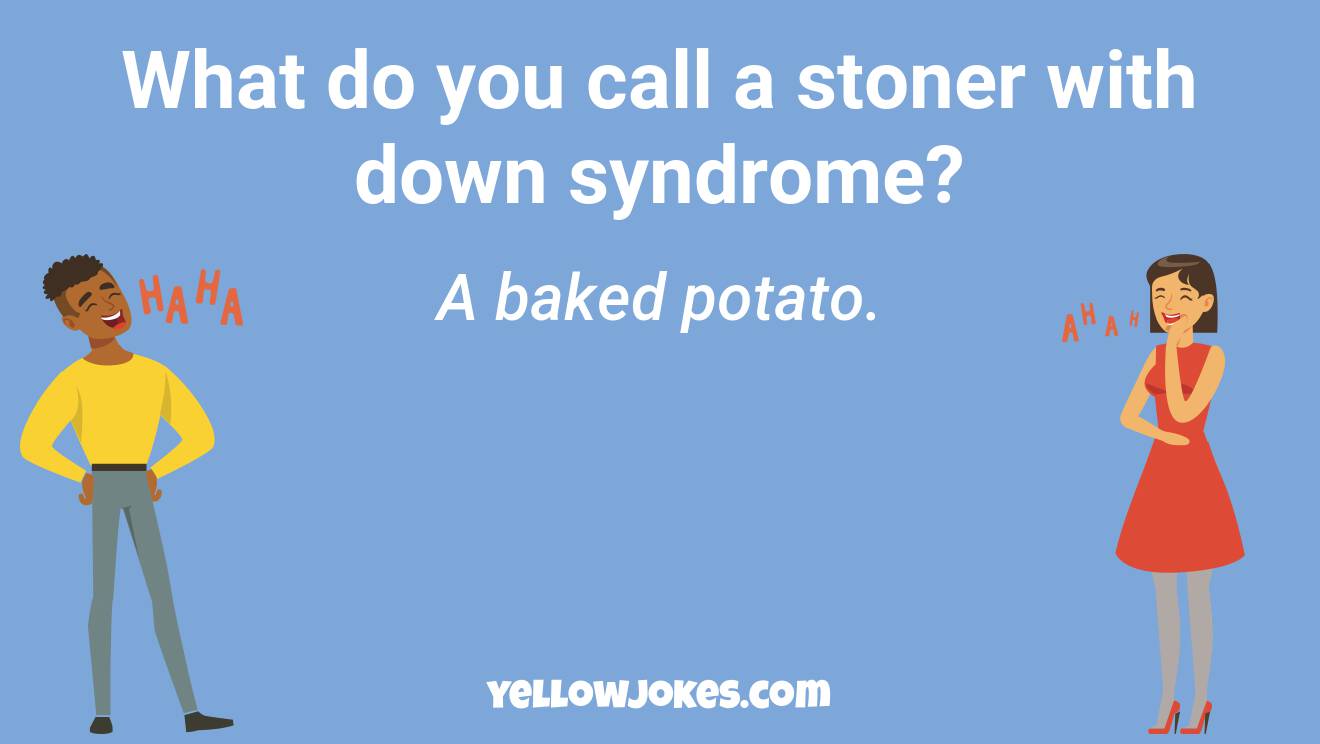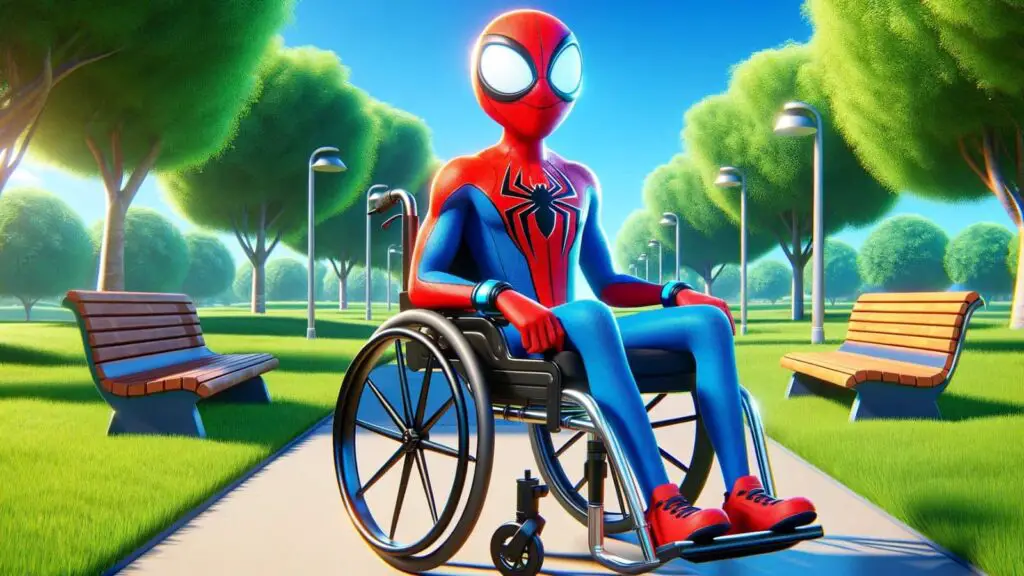Down syndrome jokes have been a topic of discussion and controversy in recent years. While humor can be a powerful tool for connection, it’s essential to approach this subject with sensitivity and awareness. People with Down syndrome deserve respect, and understanding the impact of jokes on this community is crucial for fostering inclusivity.
Humor is a universal language that brings people together, but it can also divide when not handled thoughtfully. Jokes about disabilities, including Down syndrome, can perpetuate stereotypes and stigma. This article aims to provide insight into the importance of responsible humor and how it can contribute to a more empathetic society.
By exploring the nuances of Down syndrome jokes, we can better understand their implications and learn how to promote positive interactions. This guide will cover the history of such jokes, their impact on individuals with Down syndrome, and actionable steps to create a more inclusive environment.
Read also:Pokimane Nip Slip A Comprehensive Analysis And Understanding
Table of Contents
- The History of Down Syndrome Jokes
- The Impact of Down Syndrome Jokes on Individuals
- Common Stereotypes and Misconceptions
- Raising Awareness About Down Syndrome
- The Importance of Sensitivity in Humor
- Alternatives to Down Syndrome Jokes
- Building an Inclusive Community
- Statistics and Data on Down Syndrome
- The Role of Education in Changing Perceptions
- Conclusion and Call to Action
The History of Down Syndrome Jokes
Down syndrome jokes have a long and complicated history. Historically, people with disabilities were often the subject of ridicule, and this trend extended to those with Down syndrome. The stigma surrounding intellectual disabilities contributed to the normalization of such jokes in media and everyday conversations.
Evolution of Disability Humor
Over the years, society has made strides in recognizing the harm caused by insensitive humor. However, remnants of outdated attitudes persist. Understanding the evolution of disability humor is essential for addressing the root causes of these jokes and promoting change.
- Early portrayals of people with Down syndrome in media often perpetuated negative stereotypes.
- Public awareness campaigns have helped shift perceptions, but challenges remain.
- Modern comedy increasingly emphasizes inclusivity, though progress is ongoing.
The Impact of Down Syndrome Jokes on Individuals
While some may view Down syndrome jokes as harmless, their impact on individuals with the condition and their families can be profound. These jokes contribute to a culture of exclusion and reinforce harmful stereotypes. They can also lead to feelings of isolation and low self-esteem among people with Down syndrome.
Psychological Effects
Research shows that exposure to negative portrayals of disabilities can affect mental health. Individuals with Down syndrome may internalize societal attitudes, impacting their confidence and sense of belonging. It’s crucial to recognize the psychological toll of such jokes and work toward creating a more supportive environment.
Common Stereotypes and Misconceptions
Stereotypes about Down syndrome often stem from a lack of understanding. These misconceptions can fuel jokes that perpetuate harmful narratives. Below are some common stereotypes associated with Down syndrome:
- People with Down syndrome are incapable of leading fulfilling lives.
- They lack intelligence and cannot contribute meaningfully to society.
- Individuals with Down syndrome are always happy or overly emotional.
Challenging these stereotypes is essential for fostering empathy and respect.
Read also:Sadie Mckenna Leaks Unveiling The Truth Behind The Controversy
Raising Awareness About Down Syndrome
Education and awareness are key to combating the stigma surrounding Down syndrome. By learning about the condition and its effects, individuals can better appreciate the unique qualities of those with Down syndrome. Awareness campaigns, such as World Down Syndrome Day, play a vital role in promoting understanding and acceptance.
Key Facts About Down Syndrome
Here are some important facts about Down syndrome:
- Down syndrome occurs when an individual has three copies of chromosome 21 instead of two.
- People with Down syndrome have varying abilities and talents, just like anyone else.
- With proper support, individuals with Down syndrome can lead independent and fulfilling lives.
The Importance of Sensitivity in Humor
Humor is a powerful tool, but it must be wielded responsibly. Sensitivity in comedy involves considering the feelings and experiences of others. When it comes to Down syndrome jokes, sensitivity means recognizing the potential harm and choosing alternative forms of humor that promote inclusivity.
Guidelines for Responsible Humor
To ensure humor is inclusive and respectful, consider the following guidelines:
- Avoid jokes that rely on stereotypes or negative portrayals of disabilities.
- Focus on universal experiences that everyone can relate to.
- Be mindful of the audience and their diverse backgrounds.
Alternatives to Down Syndrome Jokes
There are countless ways to engage in humor without resorting to insensitive jokes. By focusing on shared human experiences, comedians and individuals can create laughter that unites rather than divides.
Examples of Inclusive Humor
Here are some examples of inclusive humor:
- Self-deprecating jokes that highlight personal quirks or mistakes.
- Observational humor that pokes fun at everyday situations.
- Wordplay and puns that rely on cleverness rather than stereotypes.
Building an Inclusive Community
Creating an inclusive community requires effort from everyone. By promoting empathy, respect, and understanding, we can build a society where all individuals feel valued and respected. Encouraging open dialogue and embracing diversity are essential steps in this process.
Steps to Foster Inclusivity
To build an inclusive community, consider the following steps:
- Engage in conversations about diversity and inclusion.
- Support organizations that advocate for people with disabilities.
- Challenge harmful stereotypes and promote positive representation.
Statistics and Data on Down Syndrome
Data and statistics provide valuable insights into the prevalence and impact of Down syndrome. According to the Centers for Disease Control and Prevention (CDC), approximately 1 in 700 babies in the United States is born with Down syndrome. These numbers highlight the importance of addressing misconceptions and promoting awareness.
Global Perspectives
Down syndrome affects individuals worldwide, with varying levels of support and resources available. Global initiatives aim to bridge these gaps and ensure equal opportunities for all. By examining the data, we can better understand the challenges faced by people with Down syndrome and work toward solutions.
The Role of Education in Changing Perceptions
Education plays a crucial role in shaping perceptions and attitudes. Schools, workplaces, and communities can implement programs that promote understanding and acceptance of disabilities. By educating individuals about Down syndrome, we can reduce stigma and foster a more inclusive society.
Implementing Educational Programs
To implement effective educational programs, consider the following strategies:
- Integrate disability awareness into school curriculums.
- Provide training for employers and employees on inclusivity.
- Encourage community involvement in awareness initiatives.
Conclusion and Call to Action
Down syndrome jokes have the potential to harm individuals and perpetuate negative stereotypes. By understanding the impact of such humor and choosing more inclusive alternatives, we can create a society that values and respects all individuals. It’s essential to approach this topic with sensitivity and a commitment to change.
We invite you to take action by:
- Sharing this article with others to raise awareness.
- Engaging in conversations about disability inclusion.
- Supporting organizations that advocate for people with Down syndrome.
Together, we can build a world where humor unites rather than divides, and everyone feels valued and respected.


